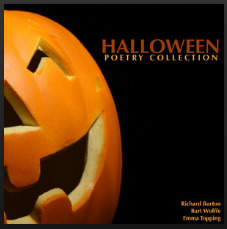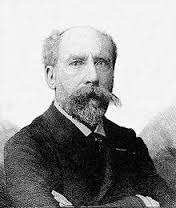
Authors

Henri Cazalis (9 March 1840, Cormeilles-en-Parisis, Val-d'Oise – 1 July 1909) was a French physician who was a symbolist poet and man of letters and wrote under the pseudonyms of Jean Caselli and Jean Lahor. To describe several of his artist friends who were avant-garde painters he coined the term Les Nabis. The term drew a parallel between the way these painters aimed to revitalize painting (as prophets of modern art) and the way the ancient prophets had rejuvenated Israel. Possibly the nickname arose because "most of them wore beards, some were Jews and all were desperately earnest". His works include: Chants populaires de l'Italie (1865) Vita tristis, Reveries fantastiques, Romances sans musique (1865) Melancholia (1868) Le Livre du néant (1872) Henry Regnault, sa vie et son œuvre (1872) L'Illusion (1875-1893) Cantique des cantiques (1885) Les Quatrains d'Al-Gazali (1896) William Morris (1897). The author of the Livre du néant had a predilection for gloomy subjects and especially for pictures of death. His oriental habits of thought earned for him the title of the Hindou du Parnasse contemporain (cf. Le Parnasse contemporain). Some of his poems have been set to music by Camille Saint-Saëns, Henri Duparc, Charles Bordes, Ernest Chausson, Reynaldo Hahn, Edouard Trémisot and Paul Paray. He also maintained a correspondence of interest with the poet Stéphane Mallarmé from 1862 to 1871. See a notice by Paul Bourget in Anthologie des poétes fr. du XIXieme siècle (1887-1888); Jules Lemaître, Les Contemporains (1889); Émile Faguet in the Revue bleue (October 1893). George Santayana's Poetry and Religion (1900) has an essay on his concept of La gloire du néant.

A master of poetry, drama, and the novel, German writer and scientist Johann Wolfgang von Goethe spent 50 years on his two-part dramatic poem Faust, published in 1808 and 1832, also conducted scientific research in various fields, notably botany, and held several governmental positions. George Eliot called him "Germany's greatest man of letters... and the last true polymath to walk the earth." Works span the fields of literature, theology, and humanism. People laud this magnum opus as one of the peaks of world literature. Other well-known literary works include his numerous poems, the Bildungsroman Wilhelm Meister's Apprenticeship and the epistolary novel The Sorrows of Young Werther . With this key figure of German literature, the movement of Weimar classicism in the late 18th and early 19th centuries coincided with Enlightenment, sentimentality (Empfindsamkeit), Sturm und Drang, and Romanticism. The author of the scientific text Theory of Colours, he influenced Darwin with his focus on plant morphology. He also long served as the privy councilor ("Geheimrat") of the duchy of Weimar. Goethe took great interest in the literatures of England, France, Italy, classical Greece, Persia, and Arabia and originated the concept of Weltliteratur ("world literature"). Despite his major, virtually immeasurable influence on German philosophy especially on the generation of Georg Wilhelm Friedrich Hegel and Friedrich Wilhelm Joseph von Schelling, he expressly and decidedly refrained from practicing philosophy in the rarefied sense. Influence spread across Europe, and for the next century, his works inspired much music, drama, poetry and philosophy. Many persons consider Goethe the most important writer in the German language and one of the most important thinkers in western culture as well. Early in his career, however, he wondered about painting, perhaps his true vocation; late in his life, he expressed the expectation that people ultimately would remember his work in optics.

John Donne was an English poet, preacher and a major representative of the metaphysical poets of the period. His works are notable for their realistic and sensual style and include sonnets, love poetry, religious poems, Latin translations, epigrams, elegies, songs, satires and sermons. His poetry is noted for its vibrancy of language and inventiveness of metaphor, especially as compared to that of his contemporaries. Despite his great education and poetic talents, he lived in poverty for several years, relying heavily on wealthy friends. In 1615 he became an Anglican priest and, in 1621, was appointed the Dean of St Paul's Cathedral in London.